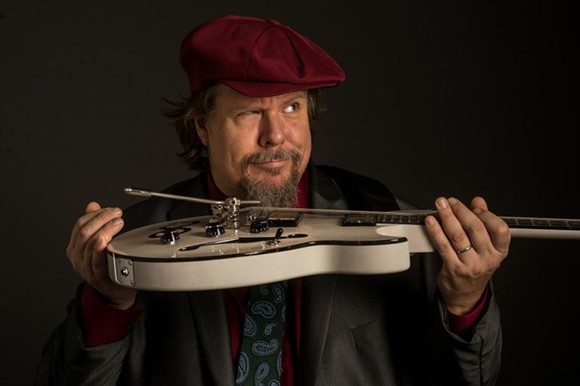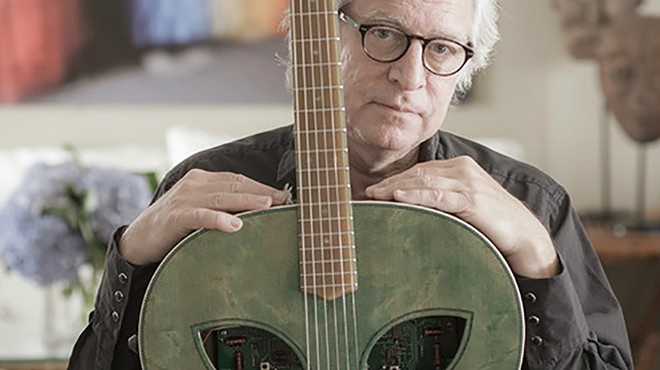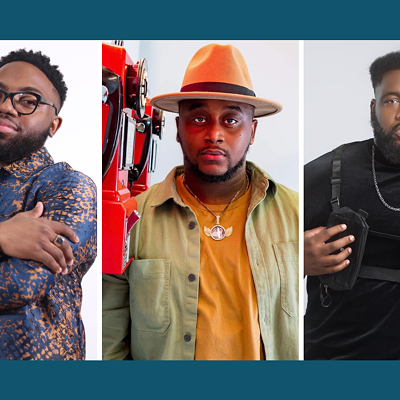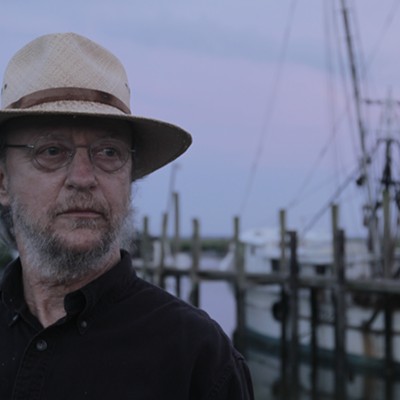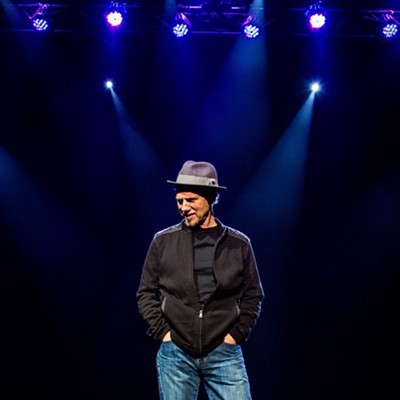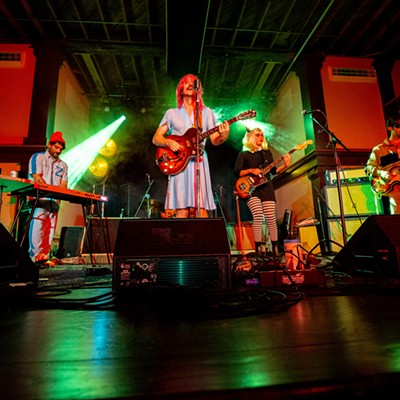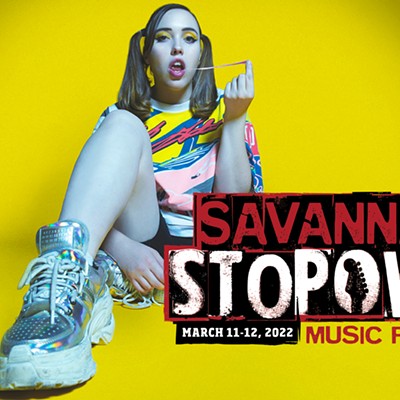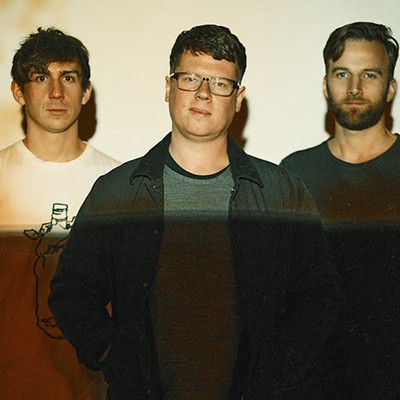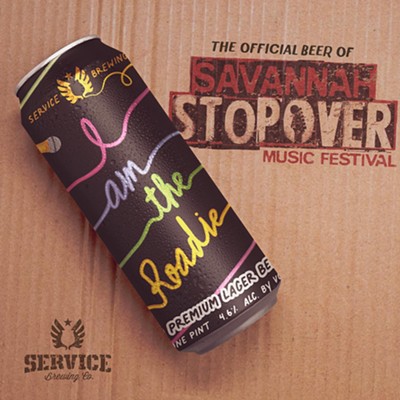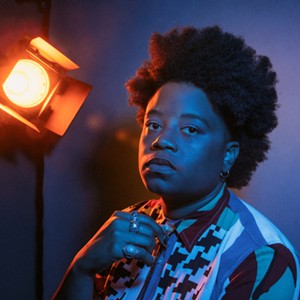GUITARIST Teddy Kumpel honed his chops as an in-demand sideman for Joe Jackson, Nine Inch Nails, The Supremes, Feist, and more. But between sessions and gigs, Kempel was building spacey, blues-steeped songs with looping stations.
Looping devices allow for the recording and playback of riffs and samples in real time, allowing solo acts to achieve multitracked, full-band effects. Kumpel dubbed the project his “loopestra,” coaxing psychdelic, orchestral sounds through an elaborate daisy chain of vintage and modern gear. The technique is a transfixing process and a thrill to witness firsthand.
Kumpel shares the stage with Savannah’s own guitar renegade, Richard Leo Johnson, at Tybee Post Theater this weekend.
How did you develop your setup?
It started out with me wanting to have a band with a lot of guitar players. I couldn’t find a lot of guitar players—you’d think in New York City there would be a lot!—but I couldn’t find a lot of guitar players to play the same thing over and over again. About ten years ago, I found out that people started making loopers, where you can rotate the sound around and around, and I started experimenting with that. I got two years in, learning how to use it in a musical way—it can sometimes be very static. I learned how to turn it off and on and learned how to use it as a musician in a band.
I’ve been doing it every Monday at Rockwood Music Hall in New York for six years, then I had to cut back because my schedule got really busy—in New York, there are great opportunities, because there are so many great musicians here who are able to rotate. Every town I play in, I have a different bass player and drummer with me. It keeps it fresh and all about the improvisation and making stuff up on the fly.
Who will join you for your Savannah show? Do you usually hire locals?
That’s a good question! Somebody. Usually—well, this is my second time doing this out of New York, so there’s no ‘usually,’ really. I’ve done it in Asia before, I did two tours of mainland China, and my wife’s from Taiwan, so every time I go there, I play a bunch of concerts. My first time venturing out of New York was playing with Joe Jackson, and I got a taste for touring.
What were you influenced by early on in those ‘sideman’ days?
I’ve been playing since I was a little kid—I’m sort of non-genre specific, I would say. What I do is what my favorite musicians do: I take all the things I like, put them in a big bowl, mix them up into a nice soup that hopefully has a good taste.
How would you explain that mix to people?
I like the blues, reggae, soul music. I like to take elements of classical music, especially the impressionistic period, like Stravinsky. I like to mix in country music. It’s very roots-oriented, but also has this otherworldly ambient classical thing going on.
You were a ‘gun-for-hire’ before the development of the loopestra. How long have you performed solo?
I’ve been doing the solo thing for a pretty long time—going on ten years. Before that, I had songs put out as a singer-songwriter, but I live in New York, and there’s a hefty rent charge here—that point of my career has been the forefront.
Do you consider your singer-songwriter work to be different than the loopestra?
The singer-songwriter stuff can be more complicated, form-wise, and more organized, and the loop stuff is more improvised on the fly, but it doesn’t lack form. It can kind of go anywhere—there’s no rules. It goes places a structured thing wouldn’t go.
They both inform each other, because I’ve written a lot of songs and know how to arrange and orchestrate to the looporchestra and improvise. I can talk about making it into a song. The best way to say it is, when I improvise, I approach it like I’m writing a song, and when I write a song, I approach it like I’m improvising. I try to mix the two things up.
You’ve been using loop stations since they were created. So much technology has advanced since then. Do you like to try out the new gear or stand by old favorites?
I follow loop pedals really closely. It’s more about content, and the looper is just the utilitarian collector of sounds. That’s not really the most important part of the performance. It’s cool when new technology comes out and you can bend the sound in a way you couldn’t, or integrate different styles of technology into the music—like, all of the sudden, you could do reverse looping six or seven years ago—that was exciting. Then everybody did it!
You took a couple of years to hone your loop abilities—it can be difficult to get it just right. Your approach seems to be a lot about economy. How do you balance that with your improvisation?
You have to be careful or you can run amuck. I have a way of turning things off in many different ways—I can edit stuff I’ve done on the fly very quickly. Sometimes, I’ll record something and not play it until the end of the song, and I’m constantly turning the loops on and off. I’ll turn the whole side of the stage off! I do a lot of things to keep it moving. Sometimes I turn off all the loops for just one second.
What can audiences expect at Tybee Post Theater?
Futuristic roots music with Zappa and Miles-tinged lyrics. There’s some humor, jazz, and blues...I gotta come up with a three-word answer for that question, ha!

